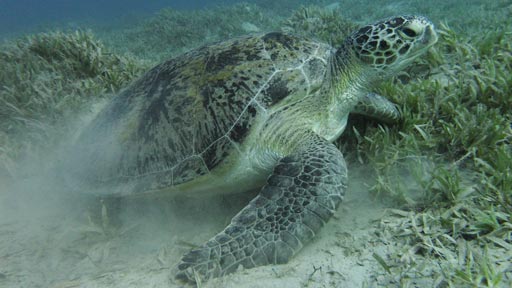
Illegal sea turtle trafficking appears to be increasing in Bali and religious ceremonies may be part of the problem, according to a report by Mongabay.
Despite laws prohibiting the capturing and trade of wild sea turtles in Indonesia, turtle meat is considered a delicacy, and demand remains strong among many local groups in Bali, where it is used in some Hindu ceremonies.

Endangered green sea turtles are most valued since they are “not carnivorous, eating mainly sea grass, making their meat less fishy,” according to Mongabay.
Consumption of turtle meat appeared to drop after local authorities and religious leaders issued regulations concerning the use of turtle meat in ceremonies in 2005. Those who want to use turtles in a ceremony must now request special permission and use only animals provided by the Turtle Conservation and Education Center.
However, police have uncovered butchered turtle meat in a number of recent raids, suggesting that consumption is increasing again on the island. Mongabay reports that by May 2017, there had been eight such incidents so far — the same number of busts that happened in all of 2016.
Currently, illegal trafficking of sea turtles is punishable by up to five years in prison and a fine of up to 100 million rupiah. However, enforcement is lax. The main strategy now is educating local communities about the importance of turtle conservation.




